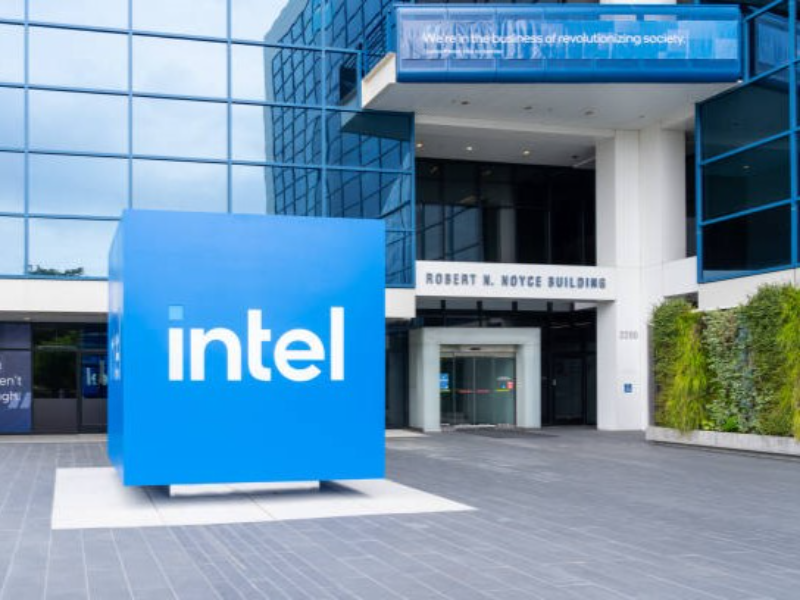- Intel projects its contract chip manufacturing business will generate substantial revenue by 2027, with talks underway with 12 potential customers.
- The company is focusing on its 18A manufacturing process while continuing its turnaround plan, including workforce reductions and streamlining operations.
OUR TAKE
Intel’s push to challenge TSMC and Samsung in the chip manufacturing space faces obstacles, including its failure to deliver viable test wafers for Broadcom. As competitors maintain their lead, Intel’s turnaround plan and focus on advanced technology will be critical in determining its future in the highly competitive foundry market.
–Jasmine Zhang, BTW reporter
What happened
Intel expects to generate significant revenue from its contract chip manufacturing business by 2027, CFO David Zinsner said at an investor conference.
While talks with 12 potential customers are underway, Intel is focusing on its advanced 18A manufacturing process, shifting away from marketing its 20A process. Despite a Reuters report about challenges in producing test wafers for Broadcom, Intel remains focused on its turnaround plan, which includes shedding businesses and cutting 15% of its workforce.
Zinsner also mentioned that Intel will likely receive funds from the U.S. CHIPS Act by the end of the year.
Also read: IFA leaks reveal Lenovo and Intel’s bold moves in AI-powered PC hardware
Also read: Intel rises as report of chipmaker exploring options cheers investors
Why it’s important
Intel’s ambitions to re-emerge as a contract chip manufacturing powerhouse face serious hurdles, with the company shifting its focus to the advanced 18A process. While Intel’s CFO speaks optimistically about generating meaningful revenue by 2027, the recent Broadcom test wafer issue signals potential cracks in the strategy. Failure to produce viable test wafers is a critical setback, particularly when competition from TSMC and Samsung is fierce.
Intel’s turnaround plan, while bold, seems to hinge on regaining trust from key clients like Broadcom. This pressure is compounded by delays in the CHIPS Act funds, meaning Intel’s financial flexibility could be constrained.
Intel’s move to cut businesses and staff by 15% further highlights the urgency of its situation. The question remains: can Intel overcome these operational challenges and technological stumbles to reassert itself in the foundry business, or will it lose ground to more reliable competitors? The next two years will be crucial.

